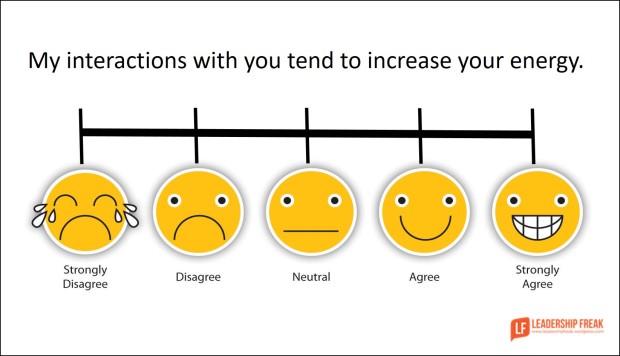Manage the splash:
You always impact those around you. Even if people turn from you, you have impact.
Some leaders tend to lift people toward bright. Some leaders tend to drag people toward dark.
Patterns produce splash – your impact on those around you. Successful leaders monitor and manage the impact of their presence and interactions. Know the effect of your current impact in order to enhance your impact. I recently asked a leader to explore his impact on others.
- How are your conversations going? (General question)
- What are you trying to accomplish? (Begin with the end in mind)
- What are you doing that impacts others? (Internal reflection)
- How are people different after you spend time with them? (External reflection)
- What would you like to try, or do differently? (Forward-facing curiosity)
Monitor and manage the energy you create:
Have a trusted team member run an energy survey. Ask everyone you regularly interact with to respond to one statement. (No names.)
“On a scale of one to five, my interactions with you tend to increase your energy.” One is low. Five is high. Try to avoid a three. Which way does the needle tip?
Have your survey-master compile the results.
5 questions to explore the results:
- What behaviors produce the result on the energy survey?
- What should you keep doing? (If the number is high.)
- What should you stop doing? (If the number is low.)
- How might you improve? (If the number is low.)
- What should you do more frequently?
Talk over your observations with trusted allies.


